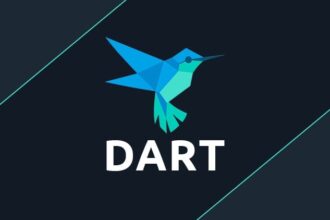What
You’ll Learn
You’ll Learn
- Understand the fundamentals of HR budgeting and its role in business strategy
- Identify all major budget categories within HR: recruitment
- payroll
- benefits
- training
- and software
- Link HR budgeting to organizational goals and demonstrate ROI
- Use benchmarks and industry data to justify budget decisions
- Build a complete HR budget using ready-made templates
- Calculate cost-effectiveness of HR activities and investment returns
- Forecast HR costs and optimize resource allocation
- Present and defend HR budget proposals to executives and finance teams
- Design flexible budgeting models for changing business needs
- Avoid common budget planning mistakes and reduce unnecessary expenses
Requirements
- No prior budgeting experience is required
- A basic understanding of HR functions is helpful
- but not necessary
- Ideal for HR professionals
- team leads
- or business partners involved in planning or reporting
- Access to Excel or Google Sheets (for working with templates)
- Willingness to apply real numbers and build practical budgets for HR
Description
Struggling to justify your HR expenses or secure buy-in from finance and leadership? You’re not alone — and this course will help you change that.
HR Budgeting Mastery is your complete guide to creating a powerful, data-driven HR budget that supports business goals, optimizes costs, and maximizes HR ROI. Whether you’re preparing your first HR budget or refining existing processes, this course delivers a proven framework to help you plan, forecast, and justify every line item with confidence.
You’ll get practical templates, benchmark data, and step-by-step instructions to build a budget that covers everything from recruitment and payroll to L&D, benefits, and HR software.
What You’ll Gain:
-
A complete HR budgeting system linked to business strategy
-
Planning for salaries, bonuses, recruitment, and benefits
-
Forecasting tools for L&D, HR tech, and employee programs
-
ROI models to justify HR investments
-
Templates and real company examples to fast-track implementation
-
Flexible budget structures to adapt to growth or crisis
-
The confidence to present and defend your budget like a pro
Course Program
Section 1: Foundations of HR Financial Planning
Class 1: What Is HR Budgeting and What Should Be Budgeted
– Understanding the purpose of HR budgets
– What can and should be budgeted in HR
– Linking HR budget to business operations
– Budget optimization strategies
Class 2: Linking Budget to Strategy and Calculating ROI
– Budget vs. strategy: which comes first
– Gathering relevant data and market benchmarks
– Evaluating budget effectiveness
– Calculating and presenting HR ROI
Section 2: Planning for Key HR Cost Categories
Class 3: Recruitment Budgeting
– Defining recruitment metrics and cost drivers
– Budgeting for employer branding and sourcing
– Managing variable costs in recruitment
Class 4: Budgeting for Compensation & Benefits
– Building salary and vacancy cost projections
– Structuring bonus and incentive planning
– Planning for perks, benefits, and overhead
Section 3: Training, Tools & Additional Expenses
Class 5: Budgeting for Learning & Development
– Internal vs. external training formats
– Creating a business case for L&D investment
– Evaluating training ROI
Class 6: Budgeting for HR Tech and Miscellaneous Costs
– Budgeting for HR automation and software
– Planning for wellness programs, merchandise, holidays, etc.
– Building a well-rounded, realistic HR budget
By the end of this course, you’ll be equipped with everything you need to create, present, and execute a professional HR budget that drives real business impact.
Enroll now and take control of your HR financial planning — before budget season hits.
Who this course is for:
- HR professionals who are responsible for budgeting
- resource planning
- or presenting HR costs to leadership
- HR business partners and generalists who need to align HR spending with strategic business goals
- People operations and finance professionals collaborating on HR investments and workforce planning
- Talent development and L&D leads budgeting for training
- upskilling
- and engagement programs
- Managers or team leads preparing departmental budget inputs or overseeing HR-related spend
- Entrepreneurs and small business owners looking to establish or improve structured HR financial planning







